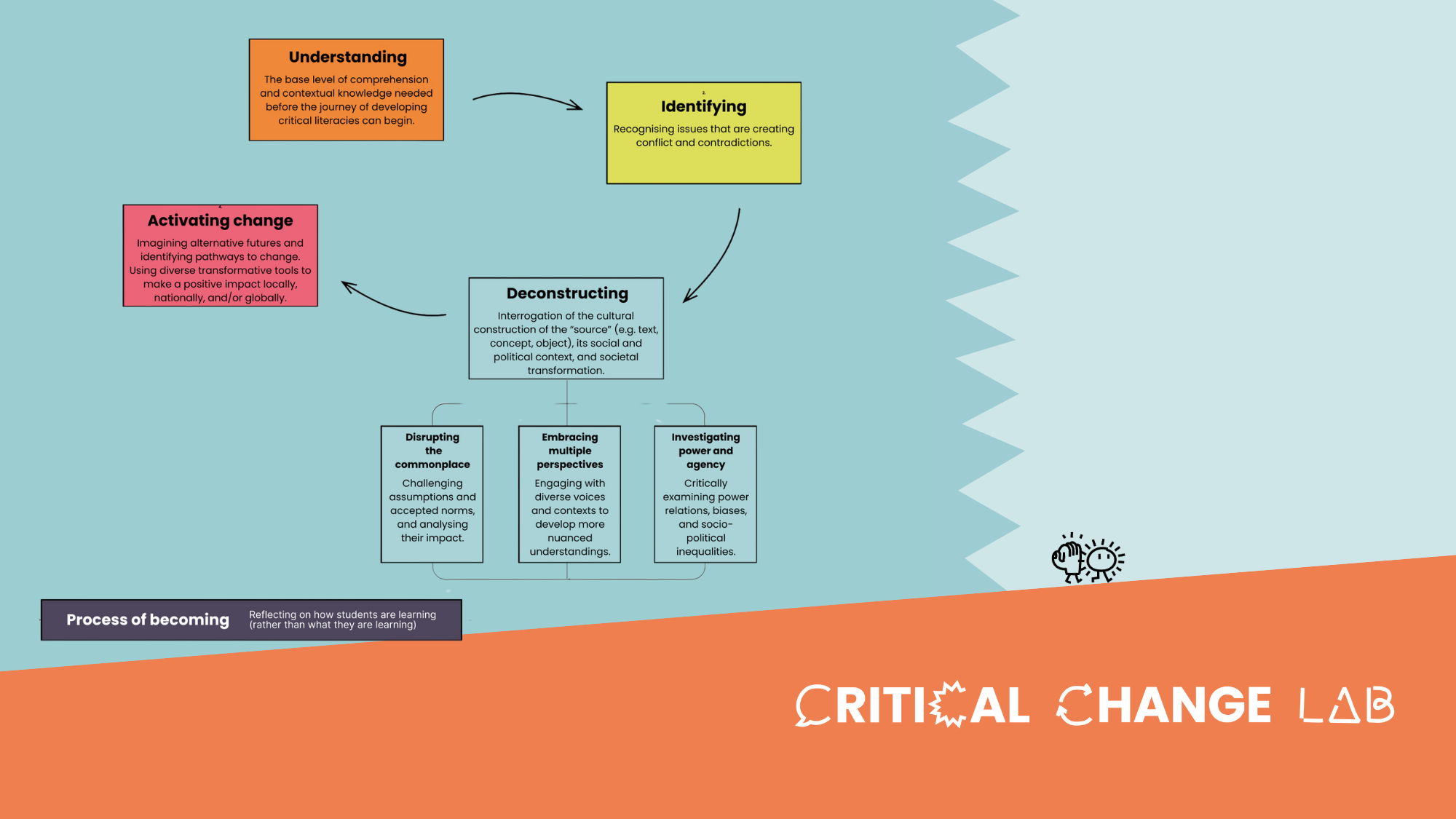At a time of polarization and dwindling trust in democracy across Europe, the Critical ChangeLab project introduces a model of democratic pedagogy to engage youth in active citizenship. Inspired by John Dewey’s concept of democracy as a shared way of living, the model promotes collective knowledge construction between youth and adults. Through collaborations across formal and non-formal education and local actors, it empowers youth to understand their transformative agency and how to react when tackling challenges concerning them.
What is the Critical ChangeLab Model?
At its core, the Critical ChangeLab Model of Democratic Pedagogy is a youth-centered approach that emphasizes participation and a strong orientation towards change. By viewing young people as active citizens and by emphasizing learning democracy through participation, it creates a space where young people work collaboratively to identify, question, and address issues that create tensions in their everyday lives. With the help of art, tools and technology, this participatory format enables youth to envision and strive for desirable futures while considering distinct types of relations (human-human, human-nature, human-technology).

Critical ChangeLab process
The Critical ChangeLab process unfolds through five phases: 1) question, 2) analyse, 3) envision and examine, 4) act, and 5) reflect. The whole process forms a Participatory Action Research (PAR) cycle that brings together youth, educators and civic society organizations. The first PAR cycle concluded in June 2024 and consisted of 22 learning environments located in 19 countries involving more than 245 young people and 45 educators.

Critical ChangeLab methods and tools
The methods used at the Critical ChangeLabs stem from various traditions such as critical pedagogy, arts and design, and activism. In this way creative and narrative practices based on future thinking, embodiment and performance, narration, and storytelling are combined to foster the participants’ collaboration, critical thinking, and creativity to tackle current challenges to democracy.
Facilitation
Given the emphasis on active and meaningful youth participation, facilitators employ strategies to build horizontal relationships between themselves, adult stakeholders, and young participants. This approach ensures that all voices are heard and valued, creating an inclusive environment where everyone can contribute equally and that aligns with Critical ChangeLab values of freedom of expression and action, equality, and community safety.
CCLabs can happen anywhere: How is the model implemented in real settings?
The Critical ChangeLab Model is based on the premise that anyone can run a Critical ChangeLab and that Laboratories can happen everywhere. The minimum requirements for running a Critical ChangeLab is a commitment to its project-based orientation and the need to ensure some time for reflection between sessions. Thus, as a minimum a Critical ChangeLab is expected to last three sessions, held on three separate (ideally non-consecutive) days. While the format and tools are not rigidly defined, face-to-face sessions are highly recommended, especially for longer engagements with young people. With flexibility to fit both formal and non-formal education, it can be tailored to local contexts and the needs of the participants.
Join our newsletter to continue to be updated on what we’re up to at #CriticalChangeLab. We’ll always keep it interesting, and only send you updates for as long as you want us to.
